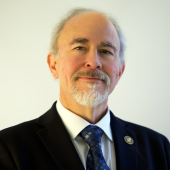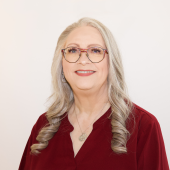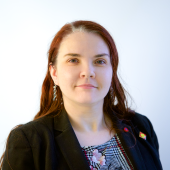
On Demand: Piecing Together the Story: Analyzing Records and Drawing Conclusions
When conducting family history research, it can be easy to make the misstep of treating a record like an answer key for the blank spots on your family tree—simply filling in the blanks and moving on to the next record. However, there are important stories, clues, and historical context that will be missed if you use records this way. In this five-week online seminar, you’ll learn how to slow down and scrutinize each record you find. Our genealogists will provide resources, strategies, and in-depth examples to demonstrate the rich stories and information that can uncovered when analyzing records.
This course includes five 90-minute classes and exclusive access to handouts and recordings of each presentation. These recordings and all course materials will be available for the foreseeable future.
Schedule
September 4 - Class 1: Analyzing, Evaluating, and Leveraging a Record, presented by Rhonda R. McClure
In this first class of the seminar, Rhonda will lay the foundation of record analysis. You’ll learn how to identify the information found in a record, understand its context, how it fits into your family history research, and what clues it can provide for the next steps in your research.
September 11 – When a Record Gives Minimal Information, presented by Melanie McComb
Every family historian has experienced the feeling of finding a sought-after record, only to find that it includes scant information. You may have found a ship manifest listing your ancestors’ name…only to find that it lists no other identifying information for the passengers. In this class, Melanie will walk you through strategies for analyzing these types of records and finding supporting evidence.
September 18 – Filling in the Gaps Between Records, presented by David Allen Lambert
Records like the census, city directories, tax records, and more can provide precious information about our ancestors. However, you may find that your ancestors’ circumstances changed quite a bit during the “gaps” between the records. Between one census and the next your ancestor may have moved to a different state, married, had children, and been widowed. In this class, David will discuss how to identify the missing information between record sets, and how to find clues and supporting evidence to fill in these gaps.
September 25 – Understanding the Historical Context of a Record, presented by Rhonda R. McClure
Our ancestors’ lives were shaped by the times they lived in, and it is impossible to fully understand a record without familiarizing yourself with the historical context it was created in. For example, growing anti-immigrant sentiment in the late 19th and early 20th centuries influenced the amount of information that was gathered on passenger lists, the census, and other records. In this class, Rhonda will demonstrate how knowing the historical context of a record set can help you deepen your understanding of your ancestor’s story. She will also discuss its importance in understanding record availability, the amount of information recorded sets, and more.
October 2 – Forgotten and Underrepresented Voices in Records, presented by Melanie McComb
Many records that are useful to family historians pertain to particular groups of individuals—those who owned land, those who could vote, those who left wills, and more. While this has created an abundance of records for some individuals, if you are researching ancestors who were marginalized, you will find that there are fewer records documenting their lives. In this lecture, Melanie will discuss how to uncover the stories of people often left out of traditional record sets such as women, enslaved people, the impoverished, Native Americans, and other forgotten and underrepresented voices in history.



